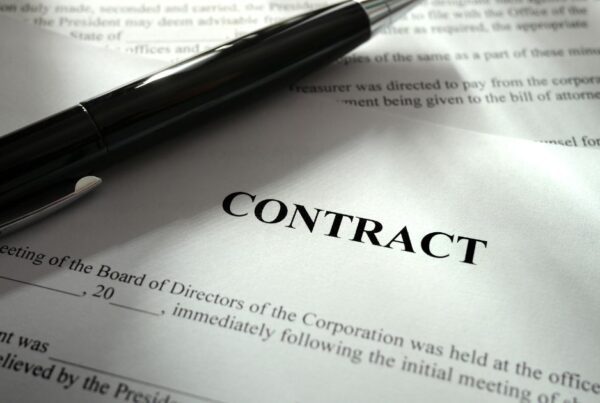 Leasing equipment can seem like a straightforward way to grow your business without tying up capital. But here’s what many business owners don’t realize: that simple lease agreement might come with a Uniform Commercial Code (UCC) lien, and that matters more than you think.
Leasing equipment can seem like a straightforward way to grow your business without tying up capital. But here’s what many business owners don’t realize: that simple lease agreement might come with a Uniform Commercial Code (UCC) lien, and that matters more than you think.
At our law firm, we’ve worked with clients across Florida who’ve leased everything from commercial kitchen equipment to heavy construction machinery, only to later discover there was a UCC-1 financing statement filed against them. In this blog post, we’ll break down why that happens, what it means for your business, and how to protect yourself before signing the dotted line.
What Is a UCC Lien?
A UCC lien is a public notice that a creditor (usually the equipment lessor or lender) has a legal interest in some of your assets. It’s filed under the Uniform Commercial Code, which governs secured transactions in the United States.
The lien is recorded using a UCC-1 financing statement, and it tells the world that this business owes someone money, and that someone has a claim on specific property if they don’t pay.
Why Would an Equipment Lease Have a UCC Filing?
This surprises a lot of business owners: Not all leases are just leases. Some equipment leases are treated more like secured loans in the eyes of the law, and here’s when that happens:
1. The Lease Is Actually a Secured Transaction
If the lease has an option to purchase the equipment at the end for a nominal amount, or if the lessee effectively takes on all the risks and rewards of ownership, courts may treat the deal like a financing arrangement. And when that happens? The lessor files a UCC lien to protect their interest, just like a lender would.
2. The Lease Agreement Gives the Lessor a Security Interest
Even if the lease doesn’t look like a loan, the language in the agreement may grant the lessor a security interest in your business assets. That means they can file a UCC-1 statement to “perfect” that interest. This protects the lessor in case you default, but it could also affect your ability to borrow, lease, or sell other equipment or assets.
How Can You Tell If a UCC Lien Has Been Filed?
The easiest way to check is by searching your business’s name in the Florida Secured Transaction Registry or your state’s UCC database. This will show:
- Who filed the lien
- What assets are affected
- When it was filed
UCC liens are public records, which means they can also show up in due diligence searches if you’re applying for financing, trying to sell your business, or entering a major contract.
Why UCC Liens Matter More Than You Think
1. It Can Limit Your Financing Options
Lenders often won’t extend new credit if there are existing UCC liens on your business assets. If your leased equipment is used as collateral, it could restrict your ability to get future loans.
2. It Can Cause Problems During a Sale or Merger
Trying to sell your business? Due diligence will uncover any active UCC liens. If not resolved or clarified, they can delay or kill a deal, especially if the buyer is worried about hidden liabilities.
3. It Can Interfere With Your Rights to the Equipment
Depending on how the lien is drafted, the lessor may have rights not just over the equipment you’re leasing, but potentially other assets as well, especially if the language is broad or overly aggressive.
Common Questions About UCC Liens and Equipment Leases
“Is a UCC lien the same as a judgment lien?”
No. A UCC lien is a voluntary lien created by a contract; a judgment lien is imposed by a court after someone sues you and wins.
“Can a UCC lien affect my credit?”
Not directly. UCC liens don’t show up on personal credit reports, but they can impact commercial credit reports and borrowing ability.
“How long does a UCC lien last?”
UCC liens typically last five years, but they can be renewed. Even if you’ve paid off or completed the lease, the lien might still remain unless it’s formally terminated.
What Should I Do Before Signing an Equipment Lease?
Before you agree to any equipment lease, it’s smart to:
- Review the contract carefully to see if it includes any language about security interests or UCC filings.
- Ask whether the lessor intends to file a UCC-1.
- Consult an attorney to review how the agreement might affect your business operations or credit access.
If you’ve already signed a lease and just discovered a UCC lien, it’s not too late, but you should take steps to understand its scope and get legal advice on next steps.
Final Thoughts: Always Know What You’re Agreeing To
At Ayala Law, we’ve seen UCC filings become stumbling blocks for otherwise thriving businesses, especially when owners didn’t even know the lien existed. Equipment leases aren’t always simple rentals, they can be secured transactions with long-term legal consequences.
If you’re about to enter a lease agreement, or if you’ve discovered a UCC lien attached to one of your past deals, contact an experienced attorney in Miami at 305-570-2208.
You can also contact attorney Eduardo A. Maura at eduardo@ayalalawpa.com.
Schedule a case evaluation online here.
Subscribe to Our Blog
Stay informed with our latest blog posts delivered directly to your inbox. Gain valuable legal insights, tips, and advice from our seasoned attorneys.







